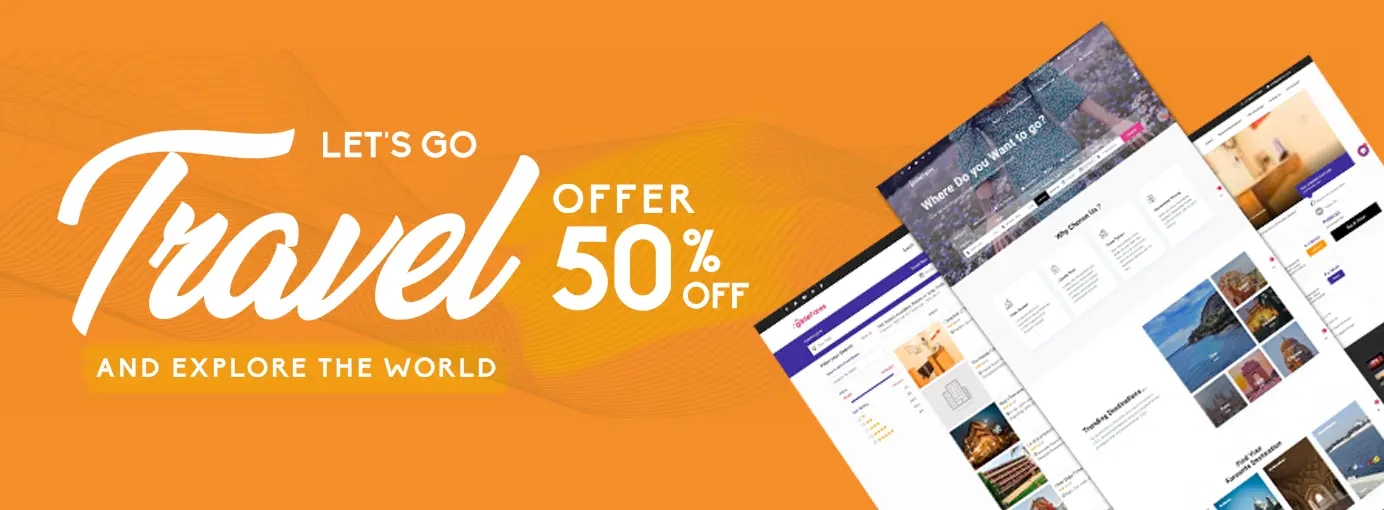Ready to go-LIVE travel solutions that helps your travel agency to sell a range of travel services pretty instantly. adivaha® travel solutions make sure you have no boundation over your imagination, you can do everything online, without the need for any technical knowledge or design skills. Easy Backoffice, extensive reporting with integrated Funds Management System.
Travel Portal Development Cost: A Comprehensive Guide to Understanding the Investment

In the competitive world of travel businesses, building a robust online travel portal is an essential step to streamline your operations, enhance customer experiences, and boost sales. However, one of the biggest concerns for travel agencies, tour operators, and other stakeholders in the industry is understanding the cost of developing a travel portal. The cost of developing a travel portal can vary widely based on several factors, including the complexity of the platform, the features you require, and the technology stack used. In this guide, we will walk you through the various elements that influence the Travel Portal Development Cost, helping you make an informed decision. Whether you are looking to create a B2B or B2C portal, this article covers all the necessary details for budgeting your project. For more information on the overall scope of developing a travel portal, refer to our Travel Portal Development page, where we explore all aspects of this exciting project.

Factors Influencing Travel Portal Development Cost
When considering the cost of building a travel portal, it's essential to evaluate the different factors that will affect your budget. The cost can range from a few thousand dollars to hundreds of thousands, depending on the scope and customization required. Here are some key factors that influence the cost:
- Platform Type: Whether you need a B2B, B2C, or a hybrid model.
- Design Complexity: The more intricate your design and UI/UX requirements, the higher the cost.
- Features and Functionalities: Custom functionalities such as booking engines, payment gateways, or integration with third-party services.
- Technology Stack: The choice of programming languages, databases, and frameworks plays a significant role in the overall cost.
- Team Expertise: The level of experience and expertise of the development team can affect the pricing.
The platform type you choose is one of the primary factors that will determine the travel portal development cost. For example, a B2B portal, which connects travel agents with suppliers, typically involves more complex integrations and additional features like bulk bookings, pricing management, and admin control systems. On the other hand, a B2C portal, designed to cater directly to end consumers, might be less complex but still require robust features such as dynamic pricing, customer profiles, and payment gateway integrations.

Another essential aspect of travel portal development cost is the design complexity. The more custom and sophisticated your design is, the higher the development cost will be. Professional UI/UX designs tailored to your target audience can increase the cost, but they also enhance the user experience, which is crucial for customer retention and conversions. If your portal needs to include advanced features like multi-language support, interactive maps, or personalized recommendations, these can all drive up the cost significantly. It's essential to balance your desired features with your budget constraints to ensure that you're investing wisely in the development process.

Finally, the technology stack you choose and the team you hire will have a considerable impact on the total development cost. Building a travel portal using open-source platforms or frameworks might reduce initial costs, but it could incur higher long-term maintenance costs. Conversely, opting for a custom-built solution using advanced technologies like AI, machine learning, or blockchain might increase the upfront investment but provide long-term benefits. Always ensure that the development team is experienced in building travel portals and understands your business needs to avoid hidden costs in the future.
FAQs
Q1: What is the average cost of developing a travel portal?
The cost of developing a travel portal typically ranges between $10,000 to $100,000 depending on the complexity of the platform and the features required.
Q2: Can I reduce the cost of developing a travel portal?
Yes, you can reduce costs by choosing open-source platforms, limiting features initially, or opting for a phased development approach.
Q3: What is the difference between B2B and B2C travel portal development?
B2B portals focus on connecting travel agents and suppliers, requiring more advanced features like bulk booking management, while B2C portals cater to individual consumers and have simpler functionalities like online bookings.
Q4: How long does it take to develop a travel portal?
The timeline for developing a travel portal typically ranges from 3 to 6 months, depending on the complexity and the size of the project.
Q5: What are the key features of a travel portal?
Key features include booking engines, payment gateway integration, user accounts, customer support systems, and real-time availability tracking.
Q6: Is it worth investing in a custom-built travel portal?
Yes, if your business requires specialized features, a custom-built portal can offer scalability, flexibility, and enhanced security over off-the-shelf solutions.
Q7: Will my travel portal require regular updates?
Yes, regular updates are necessary to ensure the platform stays secure, integrates with the latest technologies, and meets changing business needs.
Q8: How do I select the right development team for my travel portal?
Look for a development team with experience in travel portal development, a strong portfolio, and a clear understanding of your business goals and technical requirements.

